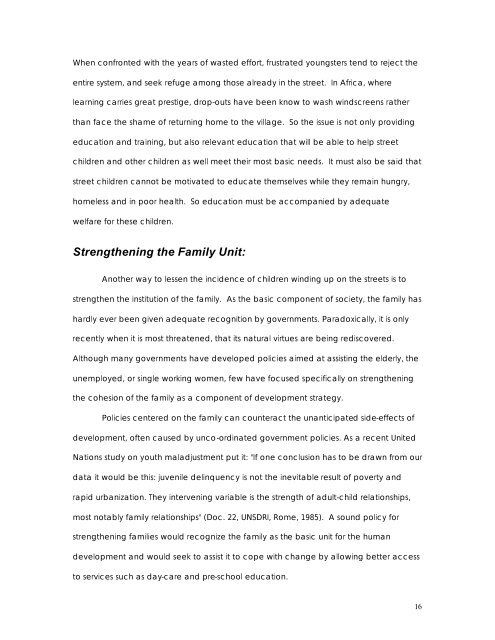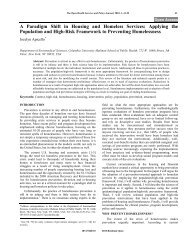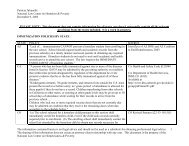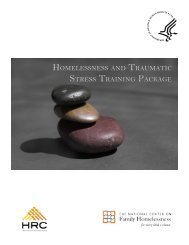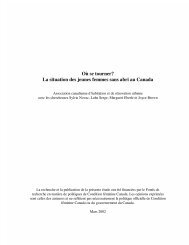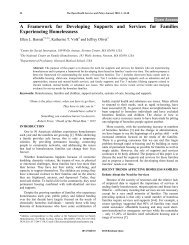international conference on street children and street children's
international conference on street children and street children's
international conference on street children and street children's
You also want an ePaper? Increase the reach of your titles
YUMPU automatically turns print PDFs into web optimized ePapers that Google loves.
When c<strong>on</strong>fr<strong>on</strong>ted with the years of wasted effort, frustrated youngsters tend to reject the<br />
entire system, <strong>and</strong> seek refuge am<strong>on</strong>g those already in the <strong>street</strong>. In Africa, where<br />
learning carries great prestige, drop-outs have been know to wash windscreens rather<br />
than face the shame of returning home to the village. So the issue is not <strong>on</strong>ly providing<br />
educati<strong>on</strong> <strong>and</strong> training, but also relevant educati<strong>on</strong> that will be able to help <strong>street</strong><br />
<strong>children</strong> <strong>and</strong> other <strong>children</strong> as well meet their most basic needs. It must also be said that<br />
<strong>street</strong> <strong>children</strong> cannot be motivated to educate themselves while they remain hungry,<br />
homeless <strong>and</strong> in poor health. So educati<strong>on</strong> must be accompanied by adequate<br />
welfare for these <strong>children</strong>.<br />
Strengthening the Family Unit:<br />
Another way to lessen the incidence of <strong>children</strong> winding up <strong>on</strong> the <strong>street</strong>s is to<br />
strengthen the instituti<strong>on</strong> of the family. As the basic comp<strong>on</strong>ent of society, the family has<br />
hardly ever been given adequate recogniti<strong>on</strong> by governments. Paradoxically, it is <strong>on</strong>ly<br />
recently when it is most threatened, that its natural virtues are being rediscovered.<br />
Although many governments have developed policies aimed at assisting the elderly, the<br />
unemployed, or single working women, few have focused specifically <strong>on</strong> strengthening<br />
the cohesi<strong>on</strong> of the family as a comp<strong>on</strong>ent of development strategy.<br />
Policies centered <strong>on</strong> the family can counteract the unanticipated side-effects of<br />
development, often caused by unco-ordinated government policies. As a recent United<br />
Nati<strong>on</strong>s study <strong>on</strong> youth maladjustment put it: "If <strong>on</strong>e c<strong>on</strong>clusi<strong>on</strong> has to be drawn from our<br />
data it would be this: juvenile delinquency is not the inevitable result of poverty <strong>and</strong><br />
rapid urbanizati<strong>on</strong>. They intervening variable is the strength of adult-child relati<strong>on</strong>ships,<br />
most notably family relati<strong>on</strong>ships" (Doc. 22, UNSDRI, Rome, 1985). A sound policy for<br />
strengthening families would recognize the family as the basic unit for the human<br />
development <strong>and</strong> would seek to assist it to cope with change by allowing better access<br />
to services such as day-care <strong>and</strong> pre-school educati<strong>on</strong>.<br />
16


